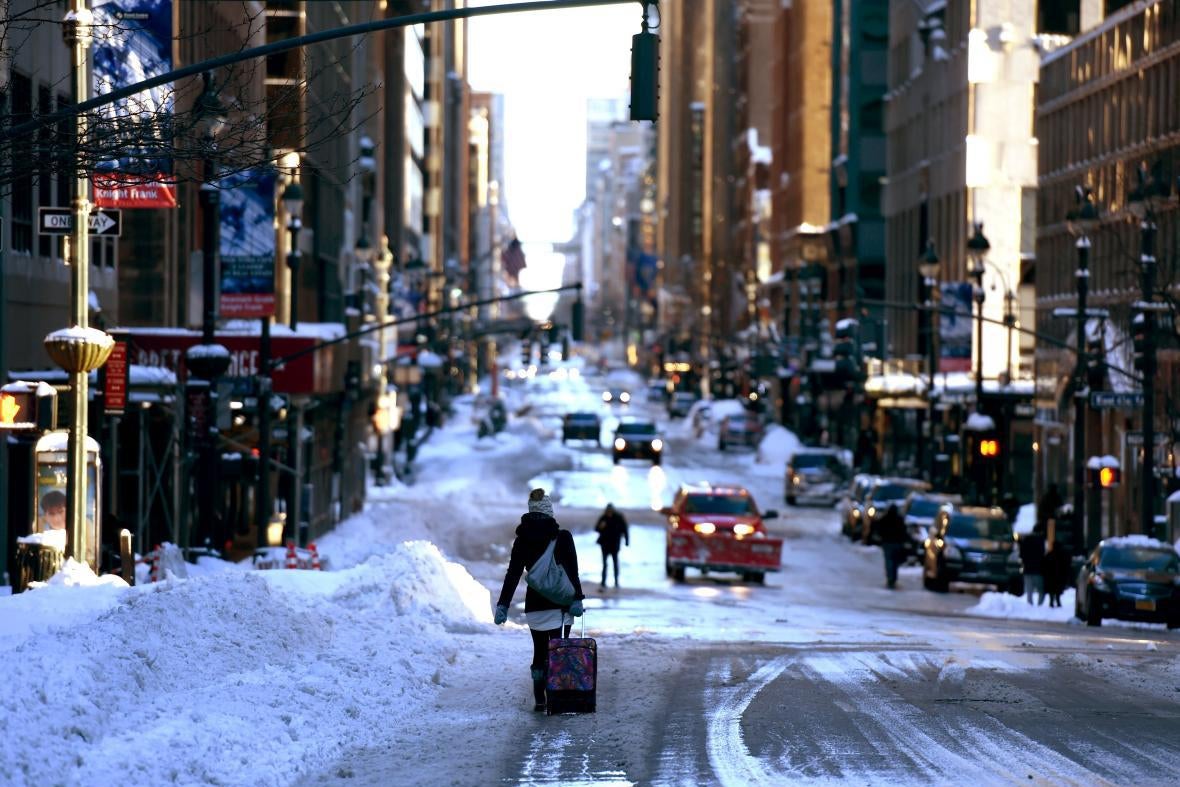On Friday, New York state became the latest U.S. jurisdiction to spar with Airbnb over short-term rental laws. Shortly after Gov. Andrew Cuomo signed a bill to levy fines on Airbnb hosts who break state housing law, the San Francisco–based company filed a federal lawsuit alleging that the new law would “impose significant immediate burdens and irreparable harm” on the company.
The law in question actually doesn’t change what’s legal or illegal in New York City, which is Airbnb’s largest market. The company’s 46,000 hosts in the state are already prohibited by a 5-year-old law from renting most apartments for a period shorter than 30 days. (They do it anyway.) What the new law does is create a hierarchy of penalties and fines for advertising that conflicts with the existing statute, from $1,000 for a first offense to $7,500 for a third.
The idea is to clamp down on the segment of the $1 billion New York City Airbnb market which, city pols have argued, consists largely of illegal hoteliers taking apartments out of the local rental market—not striving New Yorkers trying to make rent. Renting out a spare room in your apartment on Airbnb remains legal, as does renting out one of two units in a home.
In an FAQ on the lawsuit, Airbnb insists the majority of its listings are legal in New York City. But that hasn’t always been the case. Back in 2014, the state attorney general reported that more than one-third of Airbnb reservations in the city were made with “commercial” hosts with three or more units, and that 72 percent of New York City units were rented illegally. The company says it has made huge strides since then. Last week in the New York Daily News, Airbnb’s policy chief noted that the company will limit all hosts in New York City to one apartment each starting on Nov. 1.
Still, to a large extent, the 2014 report fomented an idea that never faded, even as Airbnb sought to reform: that the rental website was facilitating the removal of thousands of apartments from New York’s supply-choked housing market, thereby driving up rents. “Airbnb actually drives up the cost of housing for everyone, making it more expensive for average New Yorkers find a place to live,” wrote Linda Rosenthal, the Manhattan state representative who sponsored the bill, in June.
The company insists that’s not the case; the median number of nights rented out by a New York City host is 44 a year, the company reported in September. The company says many of those nights are spent in legal listings: private and shared rooms, boutique hotels listing through Airbnb, duplexes, and long-term stays. As for the listings now targeted by fines, many belong to full-time New Yorkers who rent out their apartments during vacations. That’s illegal, but aside from a few cranky neighbors, it’s hard to see what harm it does (except to New York’s hotels).
If the state wanted to crack down on full-time Airbnb pads but spare New Yorkers trying to make a buck when they’re out of town, it could have taken steps to distinguish everyday New Yorkers from commercial operators, as Airbnb has suggested. It could have set a limit on the number of days per year apartments could be renting before accruing fines. Instead it will levy fines on most short-term rentals of full apartments.
If Airbnb wanted to convince the state of its good intentions and the character of its business, it could have limited rental days per year itself. But the company’s closely guarded data—exactly how many units are rented out more than three months of the year?—has made it easy to mistrust. A 2016 report from a hotel-funded group called Share Better reported that the average listing in Crown Heights and Bedford-Stuyvesant, two gentrifying areas of Brooklyn, was rented more than half the year. In response, the company insisted that even full-time residents might rent their apartments out 90 days a year.
In retrospect, that was ground the company should have conceded. So here we are in some kind of confused middle ground, with litigation pending, and a law that is at once overly broad and oddly narrow. Overly broad because it considers all full-apartment listings to be hampering the housing supply (which is obviously not the case). Oddly narrow because if tourist money—funneled through Airbnb—is indeed distorting the rental market, and stopping that is a municipal priority, then the spare-room rentals are just as much of a problem.
What makes New York’s law different from a similar one in San Francisco is that—according to testimony from the bill’s sponsor during legislatives sessions—the plan is to slap the fines on New Yorkers themselves, rather than on the company.
San Francisco has threatened to fine the company for illegal listings. The problem with that approach is that Congress has largely shielded internet companies from liability for third-party content, and experts think Airbnb qualifies. So the New York law is in some ways an easier legal maneuver.
Politically, it’s not going to look good when the city’s thousands of Regular-Joe Airbnb hosts start getting slapped with massive fines for renting out their apartments for a week. In those cases, it’s hard to see what the city and its small businesses gain by squeezing tourists out of the city’s neighborhoods and into the overpriced hotels of Midtown Manhattan.
